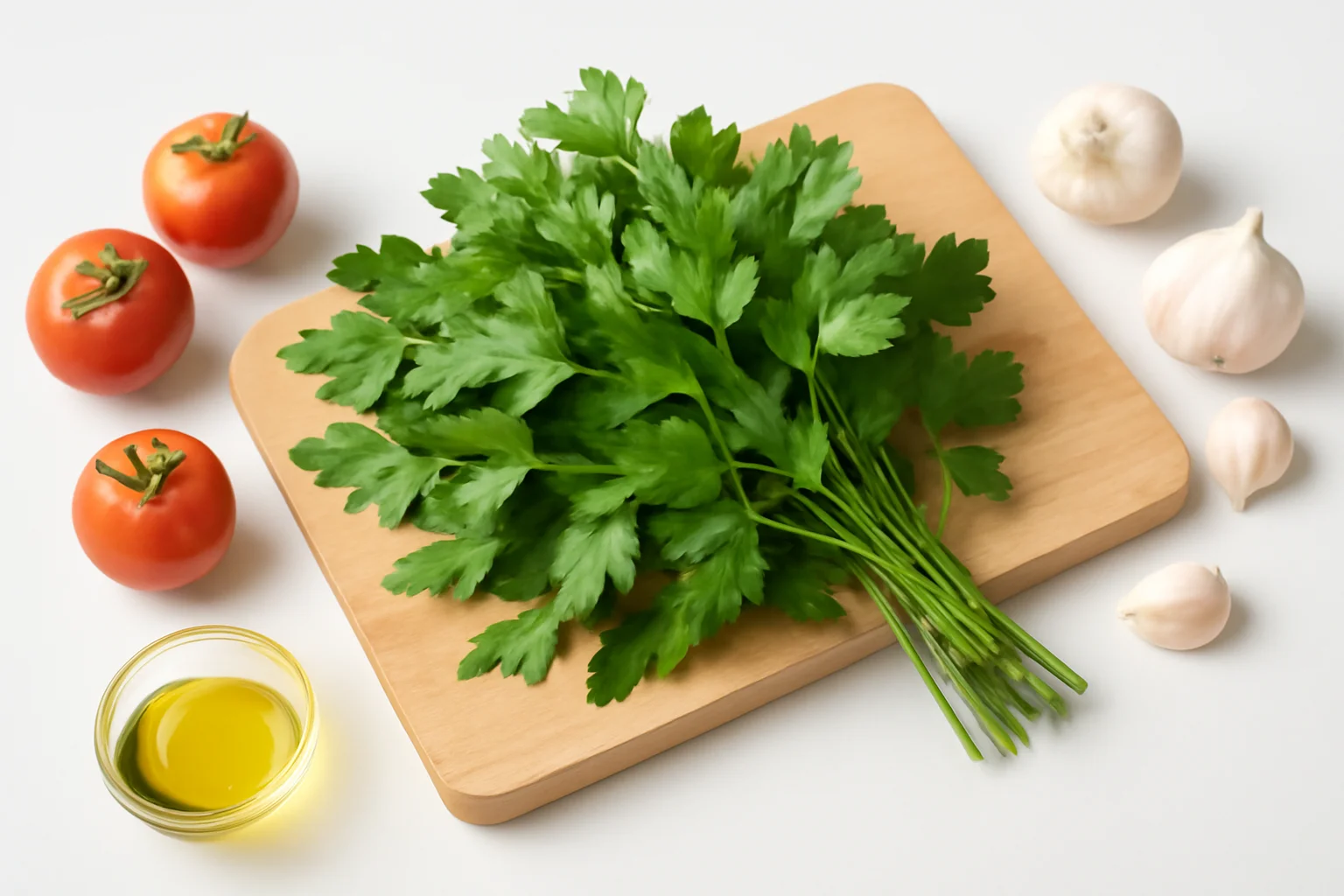
The Beneficial Effects of Parsley on Health
The parsley, also known as flat-leaf parsley, has long been a popular culinary and medicinal herb, recognized and used by many in the kitchen. This vegetable not only adds flavor to our dishes but also possesses numerous beneficial effects that can contribute to maintaining our health. Flat-leaf parsley is rich in vitamins, minerals, and antioxidants, so it is not surprising that nutritionists and herbalists acknowledge its value.
The Nutritional Content of Flat-Leaf Parsley
Flat-leaf parsley is extremely nutrient-dense, containing essential nutrients for the body. A cup of fresh flat-leaf parsley has about 22 calories, most of which come from vitamins and minerals. Parsley is particularly rich in vitamins A, C, and K, as well as folate, iron, calcium, and magnesium.
Vitamin A plays an important role in vision and skin health, while vitamin C has antioxidant properties, helping to combat free radicals and support the immune system. Vitamin K contributes to blood clotting and bone health, making it especially important for maintaining bone mass.
Folate is also essential for the healthy functioning of cells, particularly during pregnancy when it is necessary for fetal development. The minerals found in flat-leaf parsley, such as iron and calcium, contribute to blood formation and bone strength.
Flat-leaf parsley also contains antioxidants that may help reduce inflammation and prevent chronic diseases. This combination of nutrients makes flat-leaf parsley not only a flavorful but also a nourishing choice worth incorporating into our daily diet.
Digestive Benefits
One of the most important beneficial effects of flat-leaf parsley is its positive impact on digestion. The leaves and roots of the plant, due to their high fiber content, aid bowel movements, promote nutrient absorption, and reduce the risk of constipation. The fiber also contributes to the health of the gut flora, which is essential for proper digestion.
Additionally, flat-leaf parsley has a natural diuretic effect, which helps eliminate toxins from the body. The diuretic properties assist in the excretion of excess water and salt, which can reduce bloating and abdominal discomfort.
Flat-leaf parsley can also be consumed as tea, which, with its pleasant taste and beneficial effects, can be an ideal choice for digestive issues. Making the tea is simple: steep a handful of fresh flat-leaf parsley in hot water, let it sit for a few minutes, then strain. This refreshing drink not only aids digestion but also hydrates the body.
Regular consumption of flat-leaf parsley may help maintain the balance of gut flora and assist in addressing various digestive problems, such as heartburn or bloating.
Anti-Inflammatory Effects
The anti-inflammatory properties of flat-leaf parsley are also noteworthy. The antioxidants found in the plant, such as flavonoids and vitamin C, help reduce inflammation and contribute to neutralizing free radicals. Inflammatory processes in the body can be behind many chronic diseases, such as cardiovascular issues, diabetes, or arthritis.
Regular consumption of flat-leaf parsley may support the body’s natural anti-inflammatory mechanisms. Flavonoids can reduce inflammation and contribute to maintaining healthy cellular function.
Furthermore, the anti-inflammatory effects of flat-leaf parsley can be beneficial for athletes and those leading an active lifestyle. It can be used to alleviate inflammation and muscle pain during post-exercise recovery. Due to these effects, flat-leaf parsley is not only nourishing but also a functional food that can contribute to improving physical performance.
In addition to its anti-inflammatory effects, flat-leaf parsley may also be useful in maintaining skin health. It can help in the treatment of inflammatory skin conditions, such as acne or eczema, as the plant’s natural components can support skin regeneration and healing.
Blood Pressure Lowering Effects
Another notable property of flat-leaf parsley is its effect on lowering blood pressure. The minerals found in the plant, particularly potassium, contribute to cardiovascular health. Potassium helps reduce sodium levels, which is important for regulating blood pressure.
Regular consumption of flat-leaf parsley may support circulation and improve heart health. Maintaining proper circulation and normal blood pressure is crucial for preventing heart diseases.
Additionally, the antioxidant properties of flat-leaf parsley may help protect blood vessels by reducing the harmful effects caused by inflammation and free radicals. Therefore, flat-leaf parsley can play an important role in preventing cardiovascular diseases.
Due to its blood pressure-lowering effects, flat-leaf parsley may also be beneficial for individuals suffering from hypertension, but it is important to note that diet alone cannot replace medical treatment. Always consult your doctor if you have health concerns.
**Warning:** This article does not constitute medical advice. Please consult your doctor if you have health issues!

